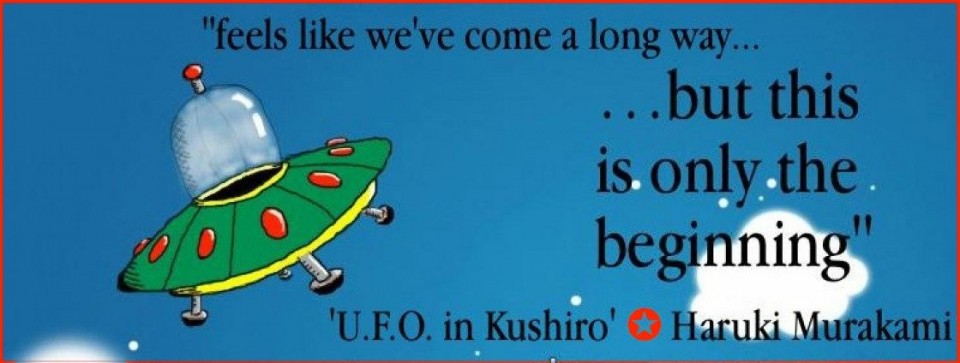
Image credit: Nikoleta Stamataki, http://nikstamataki.wordpress.com/2014/12/31/karma/
She sat on the hospital bed, making half the world appear and disappear.
When she covered her right eye, the top half of the world went dark. Not dim or misty, but gone, as if someone had taken a knife and sliced away the world with surgical precision. When she took her hand away from her eye, the world was restored; but the angles were slightly refracted, the lines of the top half not quite matching the lines of the bottom. Covering and uncovering her eye was giving her a headache, yet she couldn’t stop. Besides, the pain was dislocated – it was happening far away in someone else’s body.
There wasn’t much to do on the ward. She had already twice leafed through the magazines that her visitor had left. She had several times braved the gauntlet of nurses and guards, and shuffled aimlessly through featureless echoing corridors. She had looked at the blank first page of her new notebook, and thought about how to start writing, how to start putting the thoughts and feelings and experiences of the last few weeks down on paper. The white page was an impervious wall. She wasn’t thinking or feeling very much at all; her brain, like her body, was no longer her own, and she was relegated to the role of a dispassionate and uninvolved bystander.
It could be worse. The patients around her showed her that. Some were strapped to their beds, for their own protection. Some were staring blankly into space; others were holding animated discussions with people only they could see; occasionally someone would start shrieking until a nurse hurried over to give them their medication. The patients were prisoners, or they were exiles, trapped in or cast out from their overburdened and traitorous minds. Is that what’s going to happen to me, too?
The doctors and nurses spoke in clipped, professional tones, but in their own way they had been as uncommunicative as the patients. They were smooth with their platitudes and evasions; they refused to be pinned down; they were always rushing on to something more important. Even when they were talking to her, their eyes were focused on something behind her, or above her, or on some other dimension entirely. It was hard to tell, with her own damaged vision; but she knew that they weren’t speaking to her, even if they thought they were.
She had been on the ward for nearly a week, and she still had no clearer idea of what was happening to her, or why she was here, than when she had been admitted.
“Hello, how are you?”
A figure entered her field of vision: pressed pastel blue shirt, white coat, stethoscope and lanyard around his neck. A flash of a name, too quick to see – Dr Benamin or Benamar – as his identification badge swung past. Then he was pulling up the chair beside her bed, and a dark face – Asian, perhaps Indian – with black hair and warm eyes of the deepest brown was gazing at her, looking at her, with concern and compassion and wisdom, and she let out a sigh that came from the deepest part of her gut, tortured tension relaxing as she realised that finally, someone had come to talk to her, to tell her what was happening and what would happen next.
“I don’t know. I don’t know what’s going on, really.”
“I’m afraid that I’m not your doctor, so it’s not my place to explain what’s happening to you.” Oh. “But I might be able to help you understand why this is happening to you.” Huh? “Have you ever heard of karmic causality?” What?
The doctor took her silence as an invitation to continue. She could only sit, and listen, as his words wrapped like chains around her, cast her out of herself, and raised another impenetrable wall around her. This was not what she needed to hear.

Pingback: confused connections | unquiet fabrications and offerings